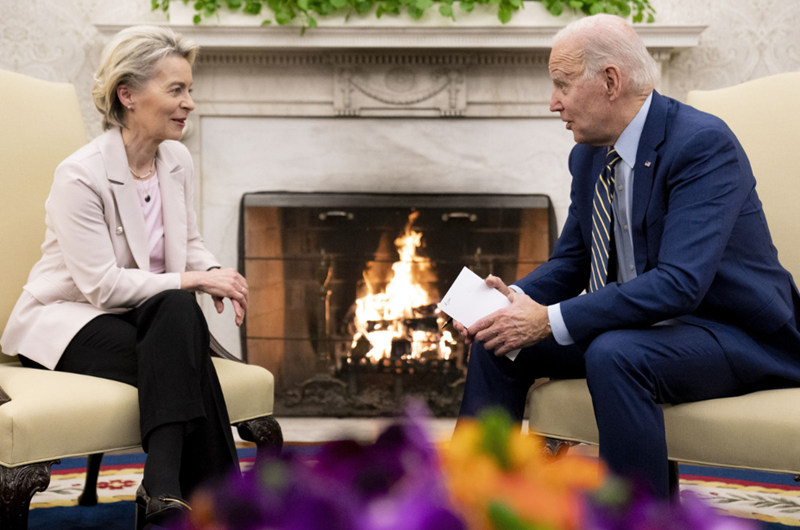Gideon Rachman analyzes how China’s incorporation into the World Trade Center has led to the US and Europe using a protectionist approach, and how although it is tempting for the EU, it still needs Chinese batteries and minerals to produce domestic EVs.
According to Gideon Rachman of the Financial Times, When China joined the World Trade Organization, American officials believed time would make China warm up to the US and become more like it, whereas in reality the opposite has occured. In addition, China’s economic growth has led to its increased military strength.
This has led many US leaders to regret China’s admission to the WTO, feeling it has contributed greatly to America’s deindustrialization, which in turn led to the rise of Donald Trump due to inequality in the US.
Rachman questions whether, instead of “boosting democracy in China,” globalization had the opposite effect on the US?
Biden has kept Trump’s tariffs on China and added hefty subsidies aimed at reindustrializing America and giving the US a lead in future technology. These measures, according to the White House, are critical to the stability of American society and its democratic system.
In addition, the US Senate voted overwhelmingly in July to prohibit China, Russia, DPRK, and Iran from acquiring US agricultural land and agricultural businesses. The measure was added as an amendment to a military spending bill, which is expected to pass the Senate and then undergo reconciliation with a House version.
The Senate’s current action comes as the US increases protectionist measures as opposed to liberal markets that Washington claims to uphold.
While many Europeans were shocked by America’s embrace of protectionism and industrial policy, recent news of an EU probe into subsidies for China’s electric vehicle sector shows that Europe may be following suit.
Source: Almayadeen



